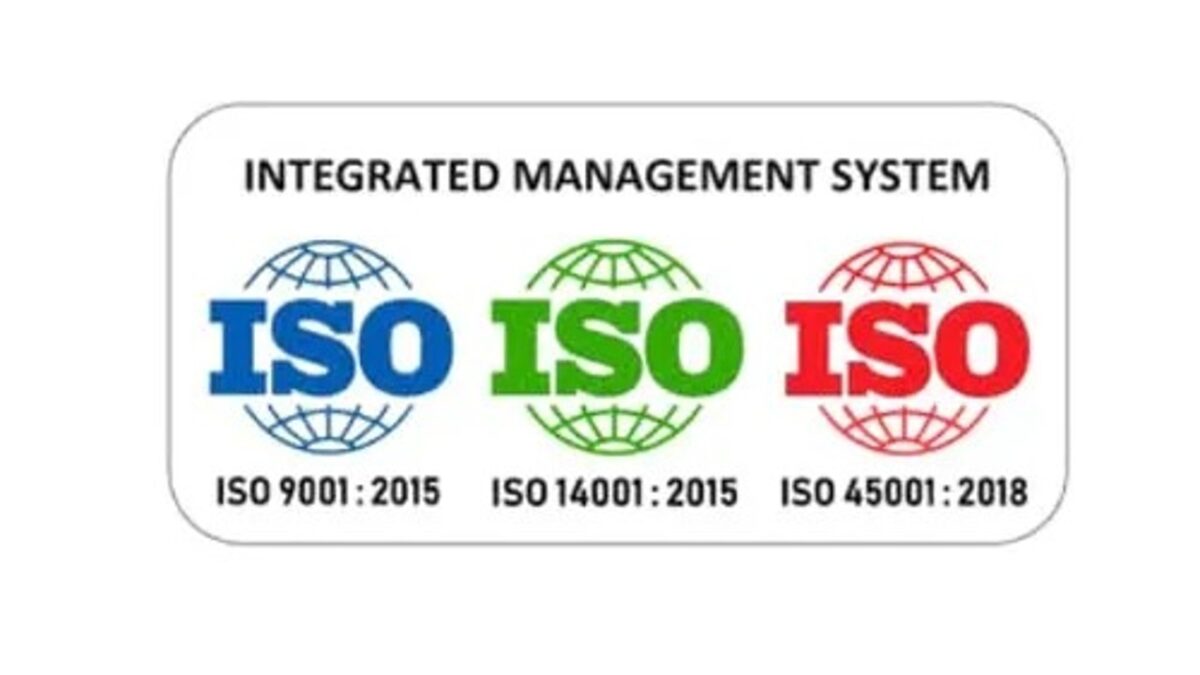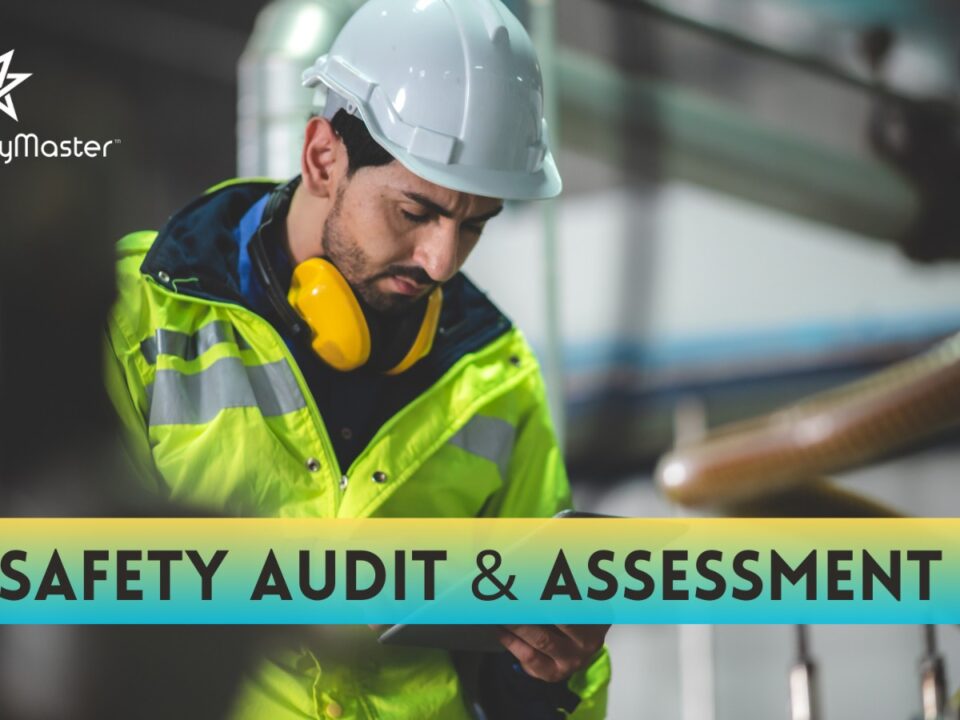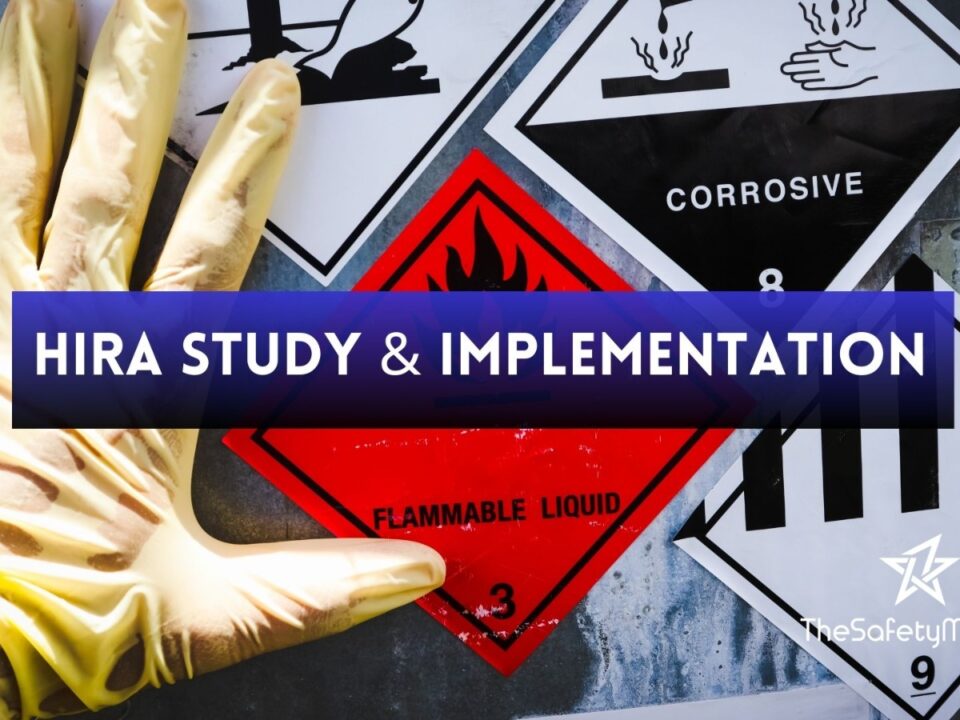Integrated Management System Internal Auditor Training by TheSafetyMaster

Job Safety Analysis Study Report and Training by TheSafetyMaster
September 28, 2023
Safety Risk Assessment by What if Analysis, FMEA and Checklist Method
September 28, 2023Are you looking to enhance your skills and advance your career in the world of quality management? Look no further than TheSafetyMaster’s Integrated Management System Internal Auditor Training. In today’s competitive business landscape, organizations are constantly striving to improve their performance and ensure compliance with various standards. However, achieving these goals requires a systematic approach and a team of skilled professionals. That’s where internal auditors come in.
In this article, we will delve into the realm of Integrated Management System (IMS) internal auditor training and explore the benefits it offers. We will discuss the importance of integrated management systems, shed light on what it means to be an internal auditor, and highlight the key skills and qualifications required for this role. Moreover, we will guide you through TheSafetyMaster’s comprehensive training program, providing you with a step-by-step approach to becoming an effective internal auditor.
The Importance of Integrated Management Systems (IMS)
In today’s complex and fast-paced business environment, organizations face numerous challenges in effectively managing their operations. This is where Integrated Management Systems (IMS) come into play, offering a comprehensive framework to streamline processes, enhance efficiency, and ensure compliance with multiple standards and regulations. An IMS brings together various management systems, such as quality, environmental, and health and safety, into one cohesive structure. It enables companies to align their objectives, policies, procedures, and performance measures seamlessly.
Implementing an IMS provides organizations with several significant benefits. Firstly, it promotes a holistic approach to managing business processes by eliminating silos and fostering cross-functional collaboration. By integrating different management systems under one umbrella, duplication of efforts is reduced while synergy is maximized. This integration not only improves operational efficiency but also enhances communication among stakeholders at all levels of the organization.
What is an Internal Auditor?
An internal auditor is a skilled professional responsible for evaluating and assessing an organization’s internal processes and systems to ensure compliance with industry standards, regulations, and best practices. They play a crucial role in safeguarding the efficiency, effectiveness, and integrity of operations within an organization.
Internal auditors possess a keen eye for detail and possess an innate ability to identify areas of improvement. They conduct thorough examinations of various departments and functions, seeking out potential risks, weaknesses, or non-compliance issues. By conducting audits, internal auditors provide valuable insights that help organizations enhance their performance, minimize risks, and maintain regulatory compliance.
Benefits of Internal Auditor Training
Internal auditor training is a transformative experience that offers numerous advantages to professionals seeking to excel in the realm of integrated management systems. This comprehensive training equips individuals with the necessary knowledge and skills to effectively assess, analyze, and improve an organization’s internal processes. One of the key benefits of internal auditor training is the ability to enhance your problem-solving capabilities. By acquiring a deep understanding of various management systems, you become adept at identifying inefficiencies, gaps, and potential risks within an organization’s operations.
Furthermore, internal auditor training empowers you with the tools to implement proactive measures that mitigate risks and streamline processes. Through this training, you develop critical thinking abilities and hone your analytical skills, enabling you to provide valuable insights and recommendations for enhancing operational efficiency. Moreover, as an internal auditor, you become a trusted advisor within your organization by fostering a culture of continuous improvement. Your newly acquired expertise allows you to guide your colleagues towards maximizing their potential while ensuring compliance with industry standards and regulations.
Key Skills and Qualifications for Internal Auditors
Being an effective internal auditor requires a unique combination of skills and qualifications. A strong foundation in risk assessment, data analysis, and problem-solving is essential. Internal auditors must possess exceptional attention to detail, as they are responsible for identifying areas of improvement within an organization’s integrated management system (IMS). Moreover, excellent communication skills are vital as auditors need to interact with various stakeholders at different levels within the organization.
In addition to technical expertise, successful internal auditors also possess a high level of adaptability and versatility. They must be able to navigate through diverse industries and adapt their auditing approach accordingly. Furthermore, having a strong ethical framework is crucial as integrity is paramount when conducting audits. Finally, auditors should continuously update their knowledge on industry trends and regulatory requirements to ensure they are equipped with the latest tools and techniques needed for effective auditing.
Finding the Right Training Program
When embarking on your journey to become a proficient internal auditor, finding the right training program is crucial. With a plethora of options available, it can be overwhelming to make the right choice. However, fear not! By considering a few key factors, you can navigate through the sea of possibilities and find the perfect fit.
First and foremost, assess your current skill set and identify areas where you need improvement. A comprehensive training program should cover all aspects of integrated management systems auditing, including ISO 9001, ISO 14001, ISO 45001, and more. Look for programs that provide in-depth theoretical knowledge combined with practical application through exercises and case studies.
TheSafetyMaster’s Integrated Management System Internal Auditor Training
When it comes to equipping professionals with the necessary skills and knowledge to excel in the field of internal auditing for integrated management systems, TheSafetyMaster stands out as a leading provider of comprehensive training programs. Their Integrated Management System Internal Auditor Training offers a unique blend of theoretical concepts and practical applications, ensuring that participants gain a deep understanding of auditing methodologies and techniques.
Designed by industry experts, TheSafetyMaster’s training program covers all aspects of internal auditing, from establishing an effective audit plan to conducting thorough audits and reporting findings. Participants will learn how to navigate the complexities of integrated management systems and build a solid foundation in compliance requirements, risk assessment, process auditing, and continual improvement. Through engaging lectures, interactive discussions, case studies, and hands-on exercises, this training program cultivates the necessary skills for aspiring auditors to excel in their roles.
A Step-by-Step Guide to Internal Auditor Training
Embarking on the journey to become an internal auditor requires a systematic approach and a deep commitment to professional development. Here, we present a step-by-step guide that will illuminate the path towards mastering the intricacies of Integrated Management System (IMS) internal auditing.
Step 1: Understand the Role
The first crucial step is gaining a comprehensive understanding of the role and responsibilities of an internal auditor. Familiarize yourself with industry standards, norms, and best practices. Internal auditors play a pivotal role in risk management, quality control, and process improvement within organizations. By grasping these key concepts, you lay a solid foundation for your training journey.
Step 2: Acquire Technical Knowledge
Next, build your technical knowledge by studying various management systems such as ISO 9001 for quality management, ISO 14001 for environmental management, and ISO 45001 for occupational health and safety. Understanding these frameworks will enable you to assess compliance and identify areas for improvement during audits.
Step 3: Seek Professional Training
To truly excel as an internal auditor, enrolling in professional training programs is essential. Look for reputable organizations like TheSafetyMaster that offer specialized courses encompassing all aspects of IMS internal auditing. These programs provide comprehensive insights into audit planning, execution techniques, report writing skills, and effective communication strategies.
Step 4: Gain Practical Experience
Theoretical knowledge alone is not enough; practical experience is vital to develop proficiency in internal
Real-life Examples of Successful Internal Auditors
When it comes to internal auditors, success stories abound, showcasing the transformative power of effective training. One such example is Sarah Thompson, a dedicated professional who started as an entry-level employee at a leading manufacturing company. Through her commitment to personal growth and acquiring new skills, she undertook TheSafetyMaster’s Integrated Management System Internal Auditor Training.
Armed with comprehensive knowledge and practical insights gained from the training program, Sarah quickly rose through the ranks. She became an indispensable asset to her organization by identifying operational inefficiencies and implementing innovative solutions. Her exceptional auditing skills not only ensured compliance with various international standards but also contributed to significant cost reductions and increased customer satisfaction.
Insider Tips for Maximizing Your Training Experience
Embarking on an Integrated Management System Internal Auditor Training can be an exciting and enriching experience. To ensure you make the most out of your training, here are some insider tips that will help you maximize your learning journey.
1. Embrace a Growth Mindset: Approach the training with a growth mindset, believing in your ability to learn and adapt. Embrace challenges and view them as opportunities for growth rather than obstacles. Remember, every new concept or skill you acquire during the training is a valuable asset that will enhance your professional competence.
2. Engage in Active Learning: Actively engage yourself throughout the training to optimize your understanding and retention of the material. Take diligent notes, participate in group discussions, ask questions, and seek clarification whenever needed. By immersing yourself fully in the learning process, you will not only grasp the concepts more effectively but also build stronger connections with fellow participants.
3. Practice Real-Life Scenarios: To truly internalize the skills acquired during training, take advantage of practical exercises and simulations provided by TheSafetyMaster’s program. These real-life scenarios allow you to apply theoretical knowledge into practical situations, reinforcing your understanding and boosting your confidence as an aspiring internal auditor.
4. Network with Peers: Make an effort to connect with other participants during breaks or networking events associated with the training program. These interactions can lead to insightful discussions, shared experiences, and potential collaborations in the future.
5. Seek Continuous Improvement: After completing TheSafetyMaster’s Integrated Management System Internal Auditor Training, don’t consider it as just a one-time event
The Impact of Internal Auditor Training on Your Career
Embarking on an Internal Auditor Training program can be a transformative experience for your professional journey. Not only does it equip you with the necessary skills and knowledge to excel in the field, but it also opens up a plethora of exciting opportunities to advance your career.
By completing TheSafetyMaster’s Integrated Management System Internal Auditor Training, you will gain a competitive edge in the job market. Prospective employers highly value individuals who possess the expertise to assess and ensure compliance with various management system standards. Your proficiency as an internal auditor will be sought after, making you an invaluable asset to organizations across diverse industries.
Conclusion
In conclusion, Integrated Management System Internal Auditor Training by TheSafetyMaster offers a comprehensive and practical approach to equipping professionals with the skills and knowledge necessary to excel in their roles. By investing in this training, individuals not only enhance their own careers but also contribute to the overall success of their organizations. As internal auditors, they become instrumental in fostering a culture of continuous improvement, ensuring compliance with standards, and driving efficiency across various management systems. Ultimately, through TheSafetyMaster’s rigorous and engaging training program, participants can confidently step into the world of internal auditing with both competence and optimism for a successful future.



